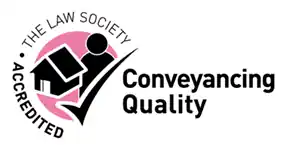We offer employees a fast and efficient settlement agreements review service – the cost of which will usually be met in full by your employer. To find out more, please contact us now on 0800 195 6412 and ask to speak to one of our legal experts.
How we can help
We can provide advice where a settlement agreement is proposed to:
- deal with legal issues relating to the termination of your employment;
- resolve a formal complaint or grievance you have raised – for example, over alleged bullying, harassment, discrimination or other improper behaviour;
- avoid performance management action being taken;
- resolve a disciplinary matter;
- address an alleged breach of contract by your employer;
- compromise an unfair dismissal claim;
- compensate you for your employer’s failure to comply with relevant employment laws; or
- effect a change in your terms and conditions.
We can also provide advice where a settlement agreement is being proposed in a redundancy situation, or in connection with a business sale or restructure.
What is a settlement agreement?
A settlement agreement (previously known as a compromise agreement) is a formal document which sets out the terms on which an employer and employee have agreed that an employment related matter between them should be addressed or resolved, and which is designed to avoid costly and lengthy legal battles arising.
It is usual for employers to suggest the use of a settlement agreement where the nature of the issue or issues that have arisen could possibly lead to them being sued in court, or result in the employee making an employment tribunal claim, and where the employee has indicated a willingness not to go down this route providing the employer agrees to pay them appropriate compensation or to provide them with some other tangible benefit, like giving them an agreed reference.
Employers use settlement agreements to resolve a dispute, or to draw a line under end-of-employment or post-employment matters, and in doing so to buy out the risk of certain specified legal claims being brought against them at some point in the future.
By signing a settlement agreement, you are likely to be giving up valuable contractual or statutory employment rights. However, you will also usually be able to achieve a much quicker resolution than would have been the case had you decided to issue legal proceeding.
You may also be able to get your employer to do things that a court or the Employment Tribunal could not order them to do – like give you a formal apology for the way you have been treated.
What does a settlement agreement typically cover?
The form and content of settlement agreements vary. However, among the issues that are normally addressed are:
- the amount of any financial compensation that is to be paid;
- when and how agreed payments will be made;
- the nature and extent of any benefits to be conferred;
- the contractual or statutory rights the employee is agreeing to give up;
- any contractual or statutory rights the employer is agreeing to forego;
- the potential claim(s) the agreement is intended to resolve or compromise;
- any property or documents that the employee is required to return, or which they may retain;
- the nature, scope and enforceability of any post-employment restrictions;
- any obligations of confidentiality on either side; and
- the settlement agreement tax implications.
Where the effect of the settlement will be to terminate employment, it is also usual for the agreement to specify why and how the employment relationship is to be ended. Close attention needs to be paid to this type of provision as it could affect your entitlement to receive certain state benefits while you are between jobs, or indeed to make a claim on any income protection insurance that you may have.
Why must independent legal advice be taken?
For a settlement agreement to be legally binding, there are certain criteria that need to be met. This includes ensuring that the agreement is in writing, that it specifies the potential claims being compromised and that it has been read and signed by the employee.
It is also a requirement that the employee must have received independent legal advice on what the mutually agreed terms mean, and importantly on the nature and extent of any contractual rights or statutory entitlements that they are, or will be, consenting to waive by signing the final settlement document.
How long will I have to decide whether to sign the agreement?
You must be given a reasonable period of time to decide whether you want to sign-up to the agreement that has been proposed. What constitutes a reasonable period will depend on the circumstance; however, in most cases, employers will aim to give you at least 10 days thinking time in accordance with the requirements of the Acas Code of Practice on Settlement Agreements.
Why come to Step Legal Solicitors for advice?
We have a team of highly experienced lawyers who specialise in providing legal advice to employees on the nature and effect of settlement agreements. Our service is fast and efficient and designed to ensure that you understand and appreciate every aspect of the deal that is being proposed.
Our legal experts are also fully insured in respect of the advice they provide – which is a necessity if you want to ensure that the agreement is binding and enforceable.
A settlement review can normally be arranged within a few days, and the advice you need provided at an in-person meeting at our offices in Crewe or Hanley, or via a telephone call or digital video conference hosted on a platform like Zoom or Skype.
Where English is not your first language, we offer a free interpretation service in Polish, Tamil, Sinhala and Malayalam and can also undertake document translation.
And remember, in most cases your legal costs will be met either in full or in part by your employer.
Contact us
To find out more, or to arrange an appointment, please call us now on 0800 195 6412 or send an email to enquiries@steplegal.co.uk.
You can make a personal injury claim whenever you have been physically or psychologically injured in an accident for which someone else was to blame or where an injury has occurred as a result of a criminal act in which you were an innocent bystander.
A claim can also be made for injuries suffered by a close relative where they are unable to claim for themselves, for example due to their age, the severity of their injuries or because they have since passed away.
The type of things you can claim for will vary depending on how your injuries were caused, who you are claiming against and whether your claim is governed by English law or the law of another country, for instance where you have been hurt in an accident abroad.
In most cases a claim can be made for:
In the event of a fatal accident, a claim can usually be made for:
In the event of a criminal act resulting in injury, a claim can usually be made for:
any associated loss of earnings or out of pocket expenses.
The amount of compensation you receive will vary depending on a number of factors, including:
Compensation for minor injuries from which a full and relatively speedy recovery can be expected will typically command payments of a few thousand pounds whereas the compensation for more serious life changing or life threatening injuries can result in payments running into hundreds of thousands if not millions of pounds.
Where a claim for compensation is made against the government then the amount of compensation you receive will usually be capped. This will be the case where a claim for injuries arising out of a violent criminal act is made to the Criminal Injuries Compensation Authority and for asbestos related mesothelioma claims made under the Diffuse Mesothelioma Payments Scheme where neither the responsible employer nor their insurer can be found.
Yes. Whenever a personal injury claim is made consideration will be given to whether there is anything that can be done to help you recover more fully or more quickly. Where we believe that there are things which could help we will discuss these with the person or organisation we are proposing to sue on your behalf (or, in many cases their insurer) to see whether they would be prepared to pay for these things to give you the best chance of getting your life back on track as soon as possible.
Our request for help has to be considered seriously because under the rules which govern personal injury claims there is an obligation to assess at any early stage, in every case, whether you would be likely to benefit from any further medical treatment, rehabilitative services such as physiotherapy or counselling, mobility aids and specialist equipment or professional support while you attempt a phased return to work. These rules are set out in the Personal Injury Pre-Action Protocol and the Personal Injury Rehabilitation Code.
Generally speaking where we ask for advanced funding we get it, particularly in cases involving serious injury where the party we propose to sue is clearly at fault and acknowledges this.
We can also often secure a voluntary payment to help tide you over financially if you are beginning to struggle with a drop in wages and increased overheads. Alternatively we can seek a compulsory interim payment order from the court which will entitle you to an early payment on account of any compensation you are likely to receive.
Yes. We are always happy to provide a second opinion where you have been told by another lawyer that your case is not strong enough to proceed or where they believe the time limit for bringing a claim has expired and there are no exceptional circumstances justifying an extension.When you come to see us we will assess your case afresh and if we believe a claim is possible we will tell you
The process for making a claim will vary depending on a number of factors, including the type of injury you have suffered, whether the person or organisation we say is to blame admits responsibility and whether the amount of compensation we are trying to claim on your behalf is agreed or disputed.
Broadly speaking, when you ask us to deal with a claim we will:
signpost you to professional advisors who can help you to manage your money and set up a personal injury compensation trust if necessary to preserve your entitlement to claim means tested state or local authority benefits.
Possibly, it depends on whether the person or organisation we say is to blame for your injuries admits they were at fault and agrees to pay an acceptable amount of compensation. If they do then an out of court settlement will be a real possibility. However, in other cases a court hearing will be needed to determine your claim and decide whether or not a compensation award ought to be made.
Where attendance at court is required this should not be a cause for concern as we will be there to support you. We will explain the process, ensure your case is fully prepared and that it is presented in the best possible light to maximise your chances of walking away with a positive result.
In most cases there will be no upfront costs to pay to make a personal injury claim. This is because in the majority of cases we can deal with your claim under a conditional fee arrangement, more commonly known as a ‘no win, no fee’ deal. Full details of how this type of funding arrangement works can be found in our costs information guide, but in essence under such an arrangement we will agree not to charge you for our services if we are not successful in recovering compensation on your behalf and you will agree that if we are successful we can take a small slice of your compensation by way of reward.
Insurance will be arranged to cover any other costs which may arise and which should mean that, unless the claim you have made is fraudulent or bad in some other way, you will not be exposed to any financial risk even if your claim for compensation ultimately fails.
The time it takes to deal with your claim will depend on a number of factors, including whether the person or organisation we are holding responsible for your injuries admits they were at fault and agrees with our assessment of the compensation you are entitled to. The severity of your injuries will also be relevant, particularly where it is not immediately clear what the long term prognosis is and therefore how much ongoing care and financial support you are likely to need.
By way of example, a straightforward claim for compensation for an injury arising out of a road traffic accident, accident at work or accident at a property may take between two to 12 months to resolve where fault is admitted and the amount of compensation sought is relatively low. However, an injury arising out of a slip, trip or fall or dog bite or animal attack which results in serious injury giving rise to a substantial compensation claim may take one to three years to resolve or even longer where the case is particularly complex.
You should not be put off making a claim because of the time it may take to deal with. Once the wheels have been put in motion it is often possible for us to secure a payment on account of any compensation you are likely to receive to ensure that you can cope financially while your claim is being assessed. Immediate financial help can also usually be obtained to pay for things like private medical treatment, physiotherapy, counselling services and mobility aids which can greatly improve your chances of making a good recovery.
Yes. All personal injury claims are subject to time limits and if you fail to claim within the limit that applies to your case then there is a high probability that a claim will not be possible.
The usual time limit for the vast majority of cases is three years from the date on which your injury occurred or the date on which you became aware of the injury where it took some time to become obvious. However, there are some notable exceptions where a different time limit will apply, including:
These time limits are strictly enforced so you should take legal advice as soon as possible.
Yes, if you are on means tested state or local authority benefits and we believe that a personal injury compensation trust would be appropriate, which will generally be the case if you have received a compensation payment of more than £6,000. This is because under the rules governing means tested benefits you and anyone living in your household can only have access to up to £6,000 in capital or savings without your entitlement to those benefits being reduced and must in no circumstances have access to more than £16,000 or your benefits will be stopped.
A personal injury compensation trust is a device that can be used to help prevent your benefit payments being affected by the compensation you have received. It works by transferring your compensation into a trust which is operated by people independent of you who will manage it on your behalf and drip feed you funds as and when needed.
We will tell you where we think a personal injury compensation trust may be appropriate and help you to make arrangements for one to be established. This must be done within 52 weeks of you receiving your final compensation payment or an interim payment as appropriate.











